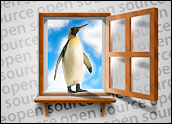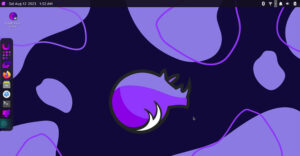
Most fans of Linux know that while the open source operating system has proven its might in corporate computer servers, it has languished on the desktop, where Microsoft maintains its monopoly.
While companies such asLinspire,Xandros and others try to make Linux more appealing on the desktop, Ubuntu Linux distributorCanonical faces a different challenge: how to move its popular, simple and easy desktop Linux distro into business computing and server environments, in order to reap the support and service dollars that await there.
Ubuntu Linux — backed by tech giants Sun Microsystems and IBM — is being pushed as an enterprise server platform. However, a better market might be corporate desktops, such as call centers and help desks, where Windows is not required and Ubuntu would simplify and save, IT-Harvest Chief Research Analyst Richard Stiennon told LinuxInsider.
“I would encourage them to go after the desktops of enterprises, rather than trying to be the server guy,” he said.
Business Plan
The latest version of Ubuntu’s desktop Linux, playfully dubbed “Dapper Drake,” has managed to lead Linux distributions among open source enthusiasts for more than a year.
Canonical has made a clear effort to move its flavor of Linux — known for better simplicity and user friendliness than other Linux distributions — to the enterprise, with certification on IBM’s DB2 database, support for Sun’s UltraSparcT1 processor on Sun servers, and support packages for servers and clusters, as well as desktops.
Ubuntu might have gained more traction with a bigger hardware player than Sun. There has been considerable skepticism as to whether a third Linux server operating system (OS) could make a dent in a market dominated by Red Hat and Novell’s Suse.
Nevertheless, Canonical, which offers server support for US$750 to $2,750 and higher for thin client and cluster support, also released server Ubuntu 6.06 Long Term Support (LTS) aimed at managing large numbers of servers, earlier this year.
Mac OS X of Linux?
Championed by South African millionaire and its founder Mark Shuttleworth, Ubuntu Linux has gone farther faster than any other Linux on the desktop platform, and its centralization of a complete user experience continues to win praise.
“It’s the Mac OS X of Linux,” Stiennon said, comparing the process of Ubuntu’s development to Apple’s morphing of the BSD (Berkeley Software Distribution) operating system into Mac OS X. “It’s a great model.”
Stiennon, who downplayed Ubuntu’s support for Sun hardware, said it would take a bigger player, such as HP or Dell, to propel Ubuntu further into the business world, where it potentially could function as leverage against incumbent Red Hat.
Spark in the Market
There is no denying the buzz around Ubuntu, said Interarbor Solutions Principal Analyst Dana Gardner. Its “spark in the market” has many wondering whether it will enjoy the same success as the last Linux company to take off: Red Hat.
By giving computer users — enterprise and consumer — what they want in a simple, easy-to-use package, Ubuntu could take the Dell path to corporate success, Gardner said, with a direct, customer-oriented business.
Canonical distributes its Ubuntu software free for anyone to use and modify in order to accommodate language or other preferences, Gardner noted. The company seems to recognize that users do not care whether they are running Linux or not.
“It sounds like [Canonical] is not selling Linux — they’re selling a customer experience,” he remarked, “and I think that’s an excellent way to go.”


















































